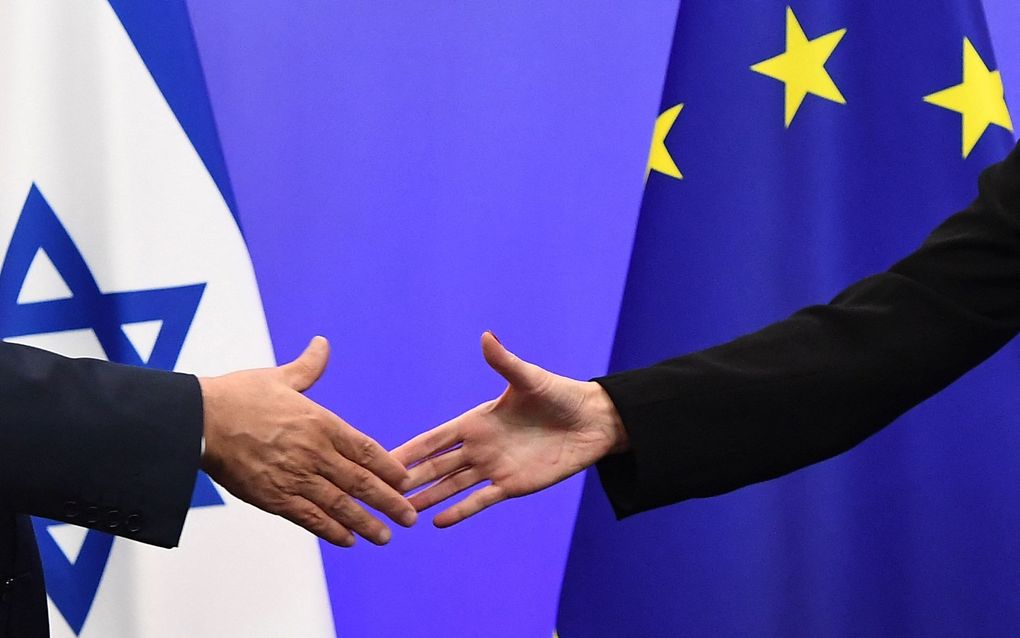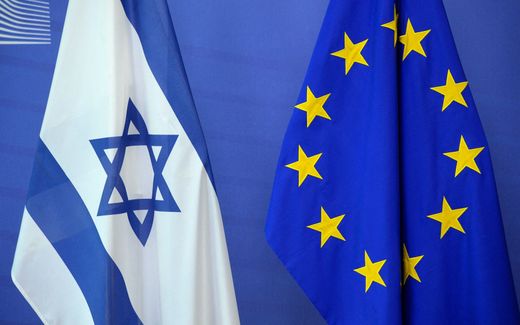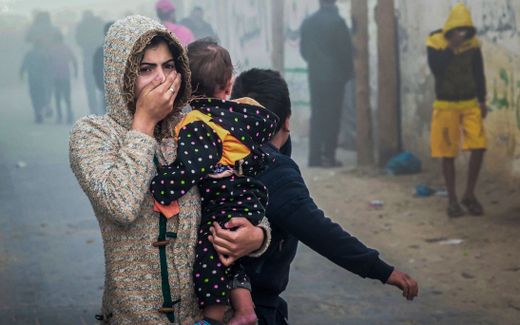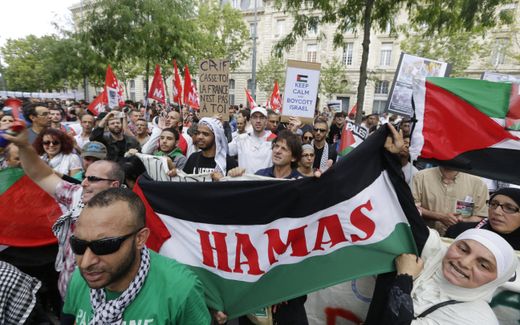Tension between EU and Israel on the rise

Israel and Europe should be able to reach out to each other. Photo AFP, Emmanuel Dunand
European Union
The European Union puts more pressure on Israel. The longer the war against Hamas takes, the more criticism Israel receives from Brussels. How will this develop? "Time is not on Israel's side."
After October 7th, the European support for Israel was “unprecedented”, Tomas Sandell says. He is the founding director of the European Coalition for Israel. He follows the relationship between Israel and the EU on a daily basis. “But this was a matter of time. We knew from the beginning this support had an expiry date.”
Also, Dr Peter Lintl, researcher at the German Institute for International and Security Affairs (SWP) saw the solidarity after the terrorist attacks. “But within weeks, you started to see more division within Europe itself.”
During the first days, the atmosphere was positive for the Jewish state. The Israeli flag was flying over many government buildings. But soon after this, pro-Palestinian demonstrations with an anti-Israeli tone popped up in the European streets.
The same applied to the political debate. It is known that some of the 27 EU member states have a critical position towards Israel. Spain and Ireland are often mentioned, and Belgium is the present chair.

Sandell: “Josep Borrell, the EU’s chief foreign representative, comes from Spain. That country is known for its anti-Jewish position. That was the same with Javier Solana in the past.”
Belgium and Ireland fit in that pattern as well, Sandell thinks. “Brussels is full of immigrants, who are usually against Israel. And Ireland is strongly connected with the IRA, the terrorist group that was anti-British and anti-colonial.”
Sandell says it is possible to add a religious element to the historical and political aspects. “Countries with a Roman Catholic tradition are usually less connected to Israel than others. Some Catholic movements are almost Marxist and think in terms of oppressor and oppressed. Then, it is usually a small step to become anti-Israel.”
Already in December 2023, Lintl saw that the 27 EU states were not able to produce a joint declaration. “The positions were too far from each other to reach a common position.”
Since then, the EU has been “unable to act”, the German expert thinks. “Borrell says another thing than Von der Leyen. There are many differences. Yet, the call for a ceasefire, humanitarian action, and evacuation has gotten stronger. That is the same in Europe as in the USA.”
Lintl sees three different positions within the European block. On the critical side, there are Spain, Ireland and Belgium. Poland, Hungary, Austria, Czechia and Slovakia are on the pro-Israeli side. “Germany tries to negotiate between those groups, although Berlin might have moved towards the pro-Israel side now. For Germany, this has obvious historical reasons.”

The British call to recognise Palestinian statehood now is no surprise to Tomas Sandell, he says. “Foreign Secretary David Cameron has always been in this position. He hopes this is a quick fix to the problem. The French President Macron said that recognition is “no taboo” for him. This all puts more pressure on Israel.”
The Israeli government is vehemently against this recognition. According to Prime Minister Netanyahu, it would be a reward for terrorism.
With his European Coalition for Israel, Sandell is very much against recognising Palestine, too. “For me, that would be a writing on the wall. A 1938 Munich moment.”
Some EU countries –like Sweden– have already recognised Palestine or have come very close to that, like Ireland and Belgium. Poland and Hungary did this already in the eighties, although this doesn’t seem to have much impact today.
Lintl: “This debate about Palestinian statehood brings more tension with Israel. For that reason, Germany would not do it.”
For the near future, Lintl does not know what to expect. “Let’s hope for a ceasefire in connection with a hostage deal. That is for the short term. For the longer term, it is all complicated. This also depends on what will happen after the war. The EU will not accept an occupation of Gaza. Israel does not want this either, but it might feel forced to do it anyway. The EU will not be able to prevent this.”

For the longer term, there is another difficulty for the EU and Israel, Sandell says. “The EU is built upon the idea that nationalism is bad and that it is better to give up national sovereignty. But for Israel, the national state is seen as the only place where Jews can have security. For that reason, they will never give up sovereignty.”
Those two mindsets are entirely opposite, says Sandell. “This has obvious consequences. Europeans don’t know what they are fighting for. Whilst for Israel, defending the state is an existential matter.”
He does not want to predict how this will develop. “The only thing we know is that time is not on the side of Israel.”
Related Articles










